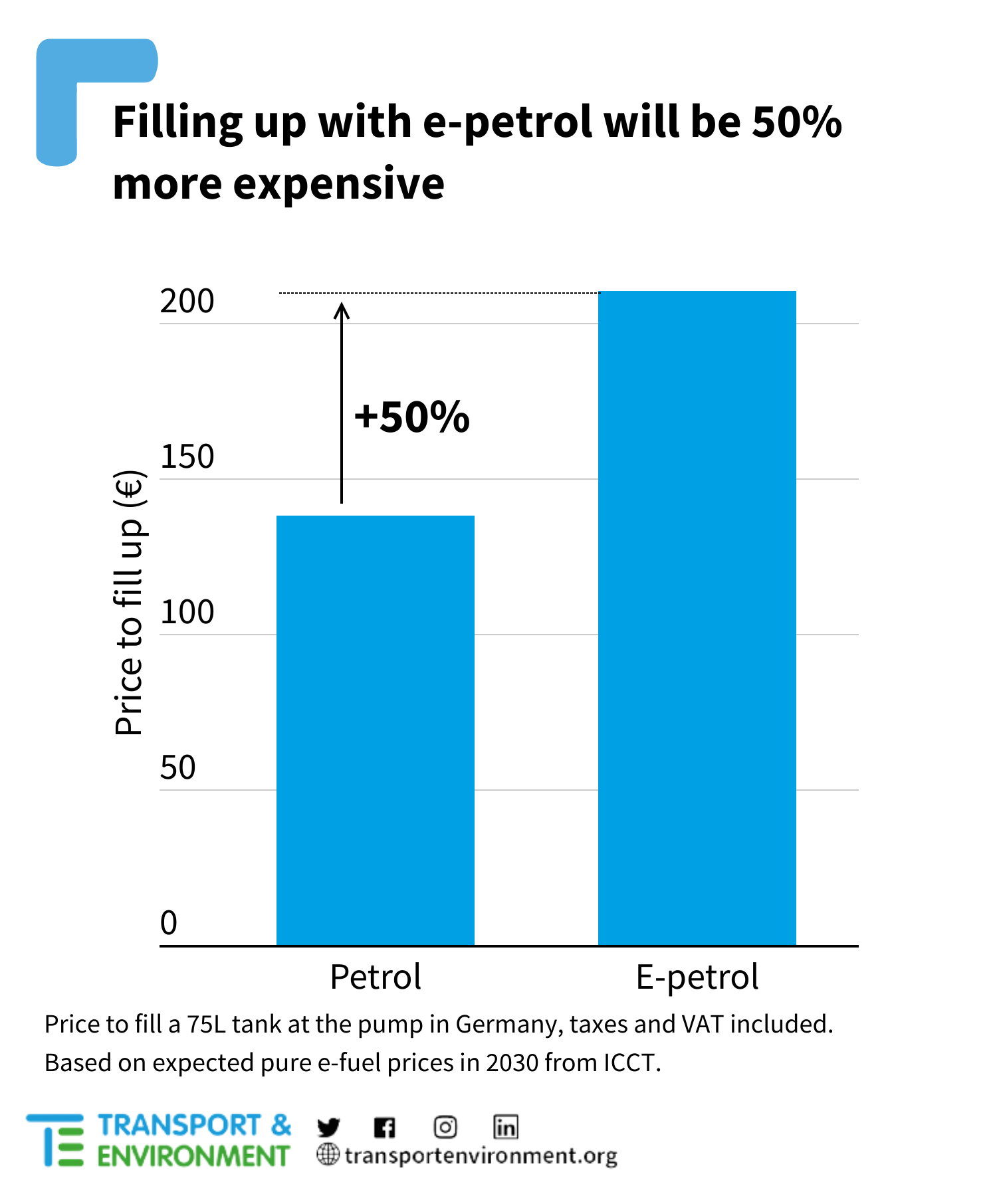Olaf Scholz’s support for e-fuels in new cars could leave the average German driver paying €210 to fill up their tank, new analysis shows. The German Chancellor is in a stand-off with the EU over his insistence that cars powered by e-fuel are allowed to be sold after a 2035 phase-out date for combustion engines. The exorbitant cost would mean only wealthy drivers could afford synthetic fuel – while pushing some drivers who purchase combustion engines certified as running on e-fuels to circumvent the rules and buy fossil petrol instead.

E-petrol could cost more than €2.80 per litre at the pump in Germany in 2030 – 50% more expensive than regular petrol today due to the complex and energy intensive production process.[1] This would cost the average driver at least €2,300 a year to fill up their car on synthetic petrol, the analysis by Transport & Environment (T&E) finds.
Alex Keynes, clean vehicles manager at T&E, said: “Chancellor Scholz is threatening to pull the rug from under the European Green Deal for the sake of saving polluting combustion engines. The higher cost of e-fuels will mean that only the wealthy could afford them while everyone else could be pushed into getting around the rules and using fossil petrol instead. Motorists and the climate will be the losers.”
Germany’s push to power new cars with scarce e-fuels would also increase CO2 emissions and oil consumption from the existing car fleet. Allowing combustion engines to be sold after 2035 would displace sales of up to 46 million zero-emission electric cars by 2050 while also depriving existing cars of the synthetic fuel they need to decarbonise. If e-petrol is used in new cars, vehicles already on the road would burn an additional 135 billion litres of fossil petrol and emit an extra 320 MtCO2e by 2050 than if e-petrol was available for the existing fleet.
Creating a loophole for e-fuels would also condemn Europeans to breathe toxic air for decades to come. While synthetic fuels can be carbon neutral, they still emit air pollutants, notably toxic NO2 and carcinogenic particles, when burned in combustion engines. Cars running on e-fuels could emit up to 160,000 tonnes of additional NOx pollution in the EU by 2050 – more toxic emissions than from Italy’s car fleet in an entire year, the analysis shows.
Alex Keynes said: “Ultimately e-fuels will be no more than a niche solution for Porsche drivers. But by undermining the clarity of the engine phase-out for the sake of an expensive and polluting fuel, Scholz is risking Europe’s green transition and the future of its car industry.”
The EU Commission is currently in negotiations with Germany over a loophole for e-fuels in the 2035 phase-out of combustion engines. T&E said that Scholz’s drive for synthetic fuels undermines investment certainty in the electrification of European carmakers and is putting at risk up to €30 billion of battery plant investments in Germany alone.
Note to editors:
[1] Based on the ICCT’s estimate of the retail e-diesel price in Germany in 2030, assuming the tax rate for e-fuels is 0.15 euros per GJ as in the proposed revision to the EU Energy Taxation Directive (ETD). T&E conservatively assumed that e-petrol prices would be similar to e-diesel prices. In reality more processing is required to produce e-petrol, leading to higher prices.
The ICCT. (2022). Current and future cost of e-kerosene in the United States and Europe


